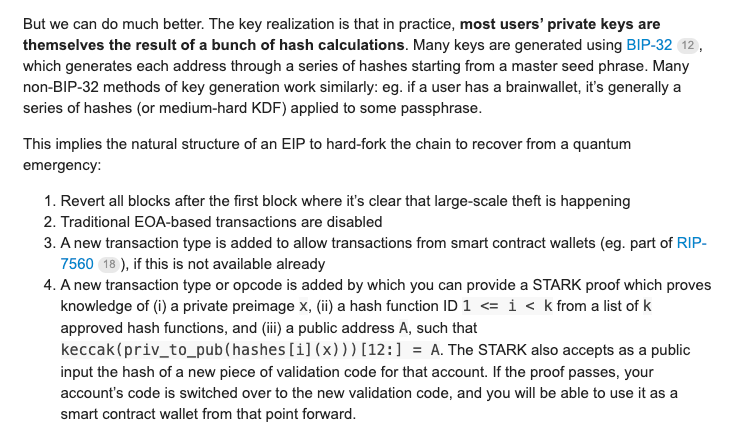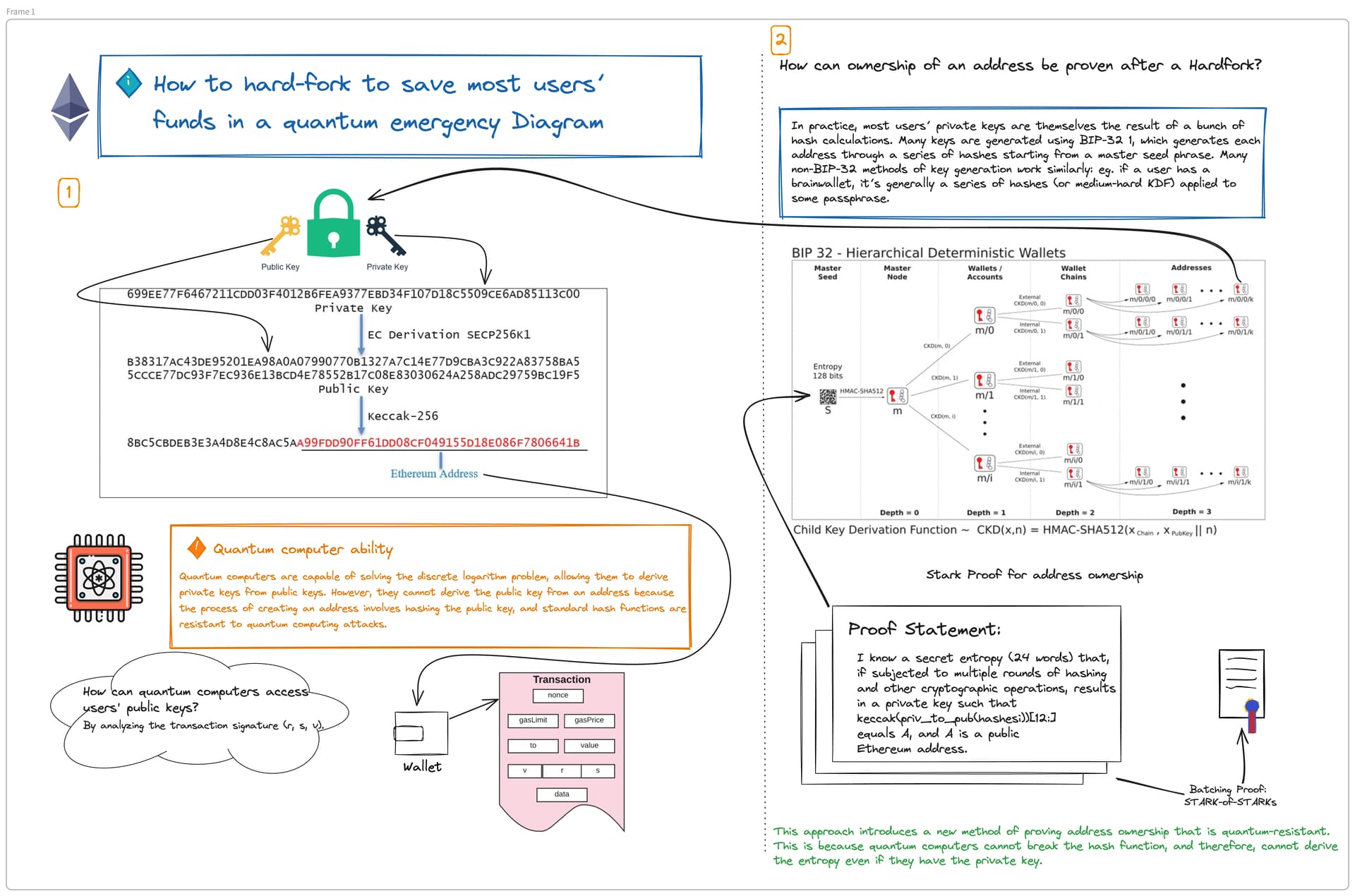- Vitalik Buterin suggests an uncomplicated hard fork to safeguard Ethereum from quantum threats, with development beginning at once.
- The introduction of a novel transaction format and quantum-resistant validation code will ensure the protection of current wallets, eliminating the risk of private key disclosure.
Vitalik Buterin suggests that Ethereum can counter the threat of quantum computing through an uncomplicated hard fork. He asserts that the essential technology needed to protect Ethereum against quantum attacks is ready for immediate development.
Seen as adequately prepared to lessen the effects of a major quantum computing threat, Ethereum, according to its co-founder Vitalik Buterin, is in a strong position. In a discussion posted on March 9 on Ethereum Research, Buterin considered the potential of a looming “quantum emergency.”
He conjectured, “Suppose it’s revealed tomorrow that quantum computers have become available, and nefarious actors are exploiting them to target users’ assets.”
Buterin maintains that Ethereum is equipped for a “straightforward remedial fork” to manage such a predicament. Implementing this fork would necessitate users to switch to updated wallet software, potentially averting considerable financial losses.
He detailed that implementing this type of hard fork necessitates rolling the Ethereum blockchain back to a stage preceding “widespread theft,” thereby halting all regular transactions from that juncture forward.
The Ethereum programming team is poised to introduce a unique transaction framework, in harmony with the proposed RIP-7560, facilitating transactions via wallets operated by smart contracts.
Launching a transaction from an Ethereum wallet leads to the disclosure of the public key via the transaction’s signature, which, following advances in quantum technology, might also risk exposing the private key.

The outlined plan involves:
- Rolling the blockchain back to a state before any quantum interference.
Halting transactions from traditional externally owned accounts (EOAs) to mitigate additional hazards.
Implementing a novel transaction system for wallets based on smart contracts, consistent with the imminent RIP-7560 protocol.
This redefined transaction strategy, essential for the quantum-resistant EIP, will employ Winternitz signatures and zero-knowledge proof techniques, such as “STARKs,” to transform existing wallets into a modern, quantum-secure verification structure.

This framework, leveraging ERC-4337 account abstraction, conceals private keys when signing transactions, thereby safeguarding these accounts against quantum breaches.
Buterin highlighted that accounts which have not been utilized for transactions remain naturally protected from quantum dangers, as only their addresses are exposed.
Furthermore, he stated that the groundwork for such a hard fork could, in principle, start immediately.
The concern that quantum computing could decrypt blockchain security, jeopardizing user assets, has consistently concerned the crypto sector.
Yet, many professionals, including those from Google and IBM, anticipate that the significant impact of quantum computing technology lies ahead, with substantial breakthroughs not expected until at least 2029.



